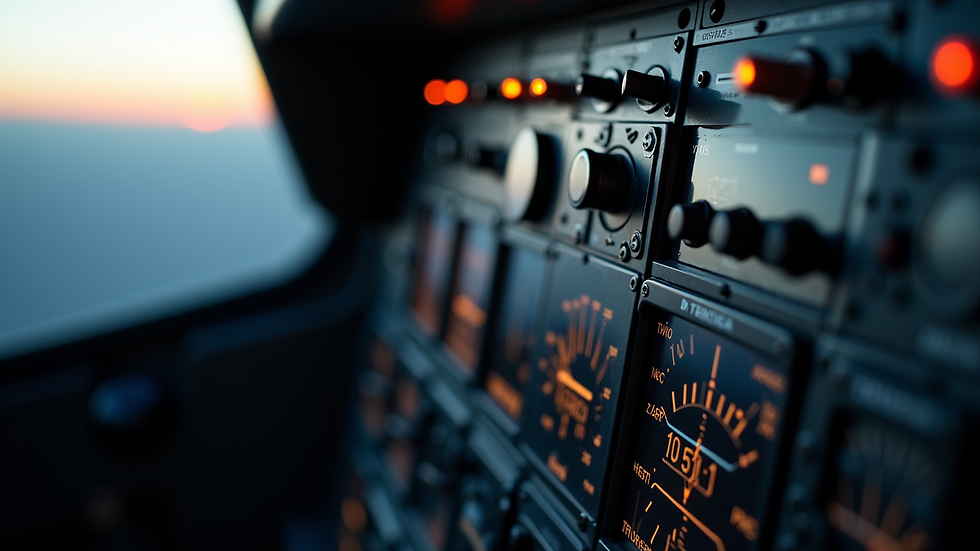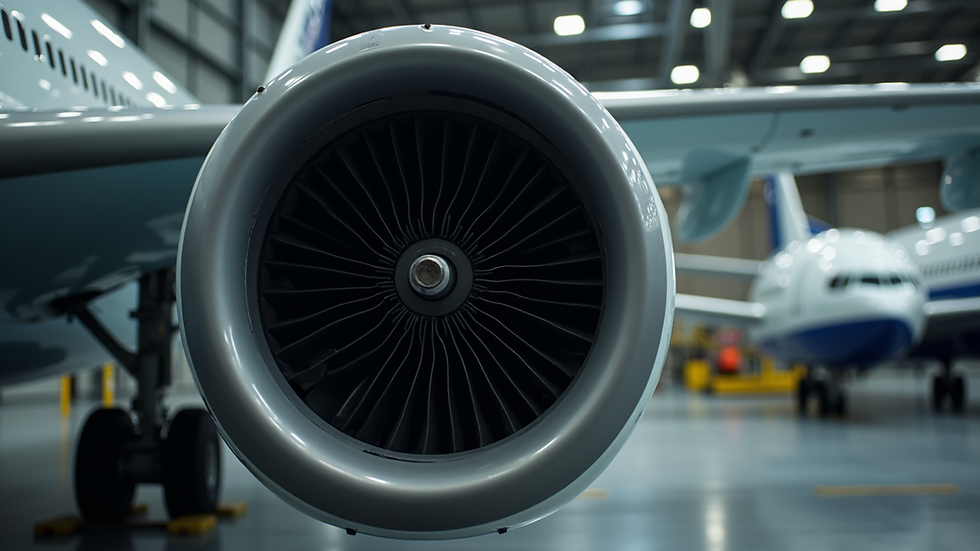Top Aviation Maintenance Courses to Elevate Your Career
- Damon Whitlow

- 6 days ago
- 4 min read
The aviation industry is one of the most dynamic and fast-growing sectors worldwide. With the increasing demand for air travel, the need for skilled aviation maintenance professionals has never been higher. If you want to build a rewarding career in this field, enrolling in top aviation maintenance classes is a smart move. These courses provide the technical knowledge and hands-on experience necessary to keep aircraft safe and operational.
Choosing the right aviation maintenance classes can open doors to exciting job opportunities, from working with commercial airlines to private jets and even military aircraft. This article explores some of the best aviation maintenance courses available, what qualifications you need, and how to make the most of your training.
Why Choose Aviation Maintenance Classes?
Aviation maintenance classes are designed to equip students with the skills required to inspect, repair, and maintain aircraft systems. These classes cover a wide range of topics, including aerodynamics, avionics, engine mechanics, and safety regulations.
Benefits of taking aviation maintenance classes include:
Hands-on training: Practical experience with real aircraft components.
Industry-recognized certifications: Credentials that boost employability.
Career advancement: Opportunities to specialize in areas like avionics or propulsion.
Job security: High demand for qualified maintenance technicians worldwide.
For example, a student who completes a comprehensive aviation maintenance course can confidently troubleshoot engine issues or perform routine inspections, ensuring aircraft meet safety standards.

Top Aviation Maintenance Classes to Consider
When selecting aviation maintenance classes, it is essential to choose programs that offer a balance of theory and practical application. Here are some of the top courses that can help you elevate your career:
1. Airframe and Powerplant (A&P) Certification
This is one of the most recognized certifications in the aviation maintenance industry. The A&P course covers both the airframe (the aircraft's structure) and the powerplant (the engine and related systems). Completing this course allows you to work on a wide variety of aircraft.
Key features:
Comprehensive curriculum covering mechanical and electrical systems.
Preparation for FAA certification exams.
Hands-on labs with real aircraft parts.
2. Avionics Maintenance Technician Course
Avionics involves the electronic systems used in aircraft, such as navigation, communication, and flight control systems. This course is ideal for those interested in the technical side of aviation electronics.
Key features:
Training on radar, GPS, autopilot, and other avionics systems.
Emphasis on troubleshooting and repair techniques.
Exposure to the latest aviation technology.
3. Specialized Aircraft Maintenance Programs
Some institutions offer specialized courses focusing on specific aircraft types or systems, such as helicopter maintenance or turbine engine repair. These classes are perfect for technicians looking to deepen their expertise in a niche area.
Key features:
Focused training on particular aircraft models.
Advanced diagnostic and repair skills.
Opportunities for internships with manufacturers or airlines.
For those interested in a well-rounded program, the aviation maintenance course offered by Wings of Grace MX Training provides a comprehensive curriculum that blends theory with practical skills, preparing students for real-world challenges.

What Qualifications Do You Need for Aircraft Maintenance?
Before enrolling in aviation maintenance classes, it is important to understand the qualifications required to enter this field. While requirements may vary by country and institution, some common prerequisites include:
High school diploma or equivalent: Strong foundation in math, physics, and electronics.
Basic mechanical skills: Familiarity with tools and machinery is helpful.
Good eyesight and manual dexterity: Essential for detailed inspections and repairs.
Pass medical and background checks: To ensure safety and security compliance.
Many programs also require students to pass entrance exams or complete preparatory courses in science and math. Additionally, obtaining certifications such as the FAA Airframe and Powerplant license or EASA Part-66 license can significantly enhance your career prospects.
Tips to meet qualifications:
Take additional courses in physics and electronics if needed.
Gain experience through internships or apprenticeships.
Stay updated on industry regulations and safety standards.

How to Choose the Right Aviation Maintenance Classes
Selecting the right aviation maintenance classes can be overwhelming given the variety of options available. Here are some practical tips to help you make an informed decision:
Accreditation: Ensure the program is accredited by relevant aviation authorities.
Curriculum: Look for courses that cover both theoretical knowledge and practical skills.
Facilities: Check if the institution has modern labs and real aircraft for hands-on training.
Instructors: Experienced instructors with industry backgrounds add value.
Job placement support: Programs that offer internships or job placement assistance can jumpstart your career.
Flexibility: Consider part-time or online options if you need to balance work and study.
By carefully evaluating these factors, you can find a program that fits your career goals and learning style.
Maximizing Your Career Potential After Training
Completing aviation maintenance classes is just the beginning. To truly elevate your career, consider the following strategies:
Gain experience: Seek internships or entry-level positions to apply your skills.
Earn certifications: Additional licenses and endorsements increase your marketability.
Network: Join professional organizations and attend industry events.
Stay current: Aviation technology evolves rapidly; continuous learning is essential.
Specialize: Focus on high-demand areas like avionics or turbine engines.
Employers value technicians who demonstrate a commitment to safety, quality, and ongoing professional development. By combining solid training with practical experience, you can position yourself for advancement in this competitive field.
Embarking on aviation maintenance classes is a powerful step toward a fulfilling career in the aviation industry. With the right training, qualifications, and dedication, you can become a vital part of the team that keeps the skies safe and aircraft flying smoothly. Explore the available courses today and take off toward your professional goals.





留言